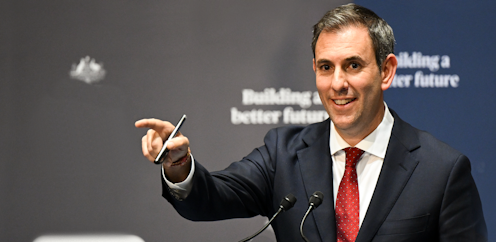Australia's first wellbeing framework is about to measure what matters – but it's harder than counting GDP
- Written by Robert Costanza, Professor of Ecological Economics, UCL

In an implicit admission that the Commonwealth budget may not measure what really matters, Treasurer Jim Chalmers is about to release what he is calling “Measuring What Matters” – Australia’s first national wellbeing framework.
The statement was to have been released as part of this year’s May budget, and an earlier hurriedly-prepared attempt was included in Chalmers’ 2022 budget.
Chalmers’ description of it as Australia’s “first” national wellbeing framework is an acknowledgement that first wellbeing statement didn’t amount to a framework. Chalmers says he is “up for the necessary conversations” needed to improve the framework further.
The one he is about to release has benefited from more than 280 submissions and the time needed to distil everything that matters for wellbeing into five broad themes, made up of about 50 indicators the treasury will track through time.
Chalmers says the themes are the extent to which Australia is
healthy
secure
sustainable
cohesive
prosperous.
In what turned out to be a parallel process, we have been developing what we call an “integrated science of wellbeing” and have just published a book with 21 contributions on the subject through Oxford University Press.
One of us has a background in psychology, one in medicine, and two in social sciences, ecology, and economics.
Among the 45 authors who have contributed chapters are specialists in a range of topics, including ageing, architecture, biodiversity, compassion, governance, Indigenous studies, population, psychology, sustainability, and trauma.
Everything is connected
All of the authors were asked to relate their work to other aspects of wellbeing, so that each chapter considered interconnections.
Behind this was an understanding that things depend on each other – meaning that giving a score to one element of wellbeing, without examining how it impacts on other elements of wellbeing, can give us the wrong idea about how to make things better.





